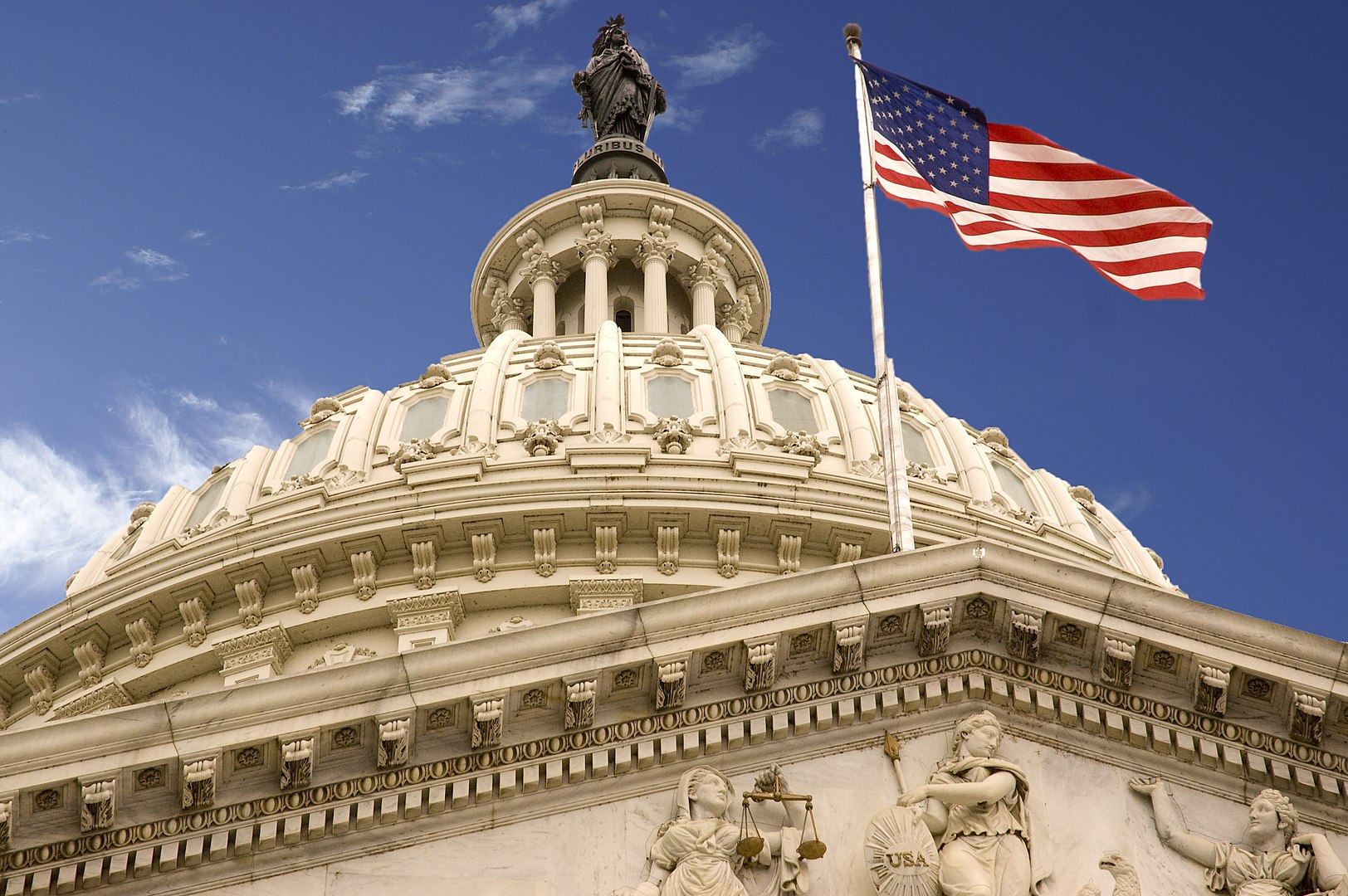The Trump Impeachment as Precedent for Future Late Impeachments
Trump’s acquittal made clear that the bar for convicting ex-officials is higher—but not insuperable. More than two-thirds of the Senate left the door open to convict ex-officials in the future.

Published by The Lawfare Institute
in Cooperation With

During former President Trump’s second impeachment episode, precedents—especially the impeachment trials of former Sen. William Blount in 1798 and former Secretary of War William Belknap in 1876—featured prominently in the discussion. The question now becomes what sort of precedent Trump’s case will represent the next time “late impeachment” is on the table.
The short answer is that the precedential landscape is pretty much where it was before. Future Houses of Representatives will feel just as free as this one did to impeach presidents late in their terms, or even shortly afterward. Future Senates will feel just as free to conduct the trial. But as a practical matter—practical matters being decisive in impeachment cases—some senators will still feel free to reject late impeachment, making a conviction harder (but not impossible) to obtain.
That’s the short answer. The long answer has some wrinkles to it.
When the Senate voted 56-44 on Feb. 9 that it had jurisdiction over Trump, the only formal effect of the vote was to allow the trial to go forward. The vote did not bind senators to accept that jurisdiction was proper when they cast their guilty/not guilty votes four days later (notwithstanding the House managers’ assertion to the contrary).
Had Trump’s jurisdictional vote gone the other way and the case been dismissed, it would have established a strong precedent against late impeachability (similar to the way Blount’s case stands as a strong precedent against the impeachability of senators). Had Trump been convicted, it would have established a strong precedent in favor of late impeachability. But the result was ambiguous, leaving late impeachability unsettled in Trump’s case.
This is just what had happened in Belknap’s case in 1876. There, the Senate voted 37-29 that it had jurisdiction to try an ex-official—a more extreme decision than in Trump’s case given that Belknap was out of office when the House impeached him. After two months of trial, Belknap was acquitted 37-25 (short of a two-thirds majority). Of the 25 senators voting “not guilty,” 22—more than enough to guarantee acquittal—indicated that they had done so on the grounds that Belknap was no longer in office. Had senators been bound by the Senate’s jurisdictional vote, or were conviction possible with a simple majority rather than two-thirds, Belknap would have been convicted. Neither was the case, though. Belknap’s case thus stands for the conflicting notions that officials can be impeached and tried after leaving office, but that it will be harder to convict them.
Constitutional precedents function differently in Congress than they do in courts. (There are no court precedents here; the Supreme Court has never decided a case about impeachment, other than the one in which it recognized the Senate’s exclusive interpretive authority over the Constitution’s impeachment-trial provisions.) Even to the extent that senators consider themselves bound by previous Senate cases, those prior decisions are not expressed the way a court’s are. There is no “opinion of the court” in which the Senate explains its reasoning, analyzing the constitutional text and structure, exploring its history, and analogizing to and distinguishing from previous precedents. Individual senators can explain their reasoning, but they are more apt to give a brief statement than a detailed legal analysis.
So what did the senators say this time, and what can we cobble together from that?
Compared to Belknap’s case, it is harder to say that Trump’s acquittal was based on his having already left office. In Belknap’s case, the senators’ statements made it crystal clear (for a partial glimpse, see pages 1051 to 1061 here) that they were voting to acquit because they thought late impeachment was unconstitutional. The statements in Trump’s case were more muddled; inferences are required.
While 44 senators had voted against the jurisdictional motion (“Is Former President Donald John Trump Subject to a Court of Impeachment for Acts Committed While President?”), not all of those senators opposed jurisdiction four days later. Most obviously, Sen. Richard Burr, who voted to convict Trump, must have accepted that the Senate had jurisdiction.
Among the 43 senators who voted “not guilty,” 40 made official statements after the vote to explain their positions (Sens. Josh Hawley, Rand Paul and Tim Scott did not).
The majority, a group comprising 26 senators, stated clearly that they based their decision on the Senate’s lack of jurisdiction: John Barrasso, Roy Blunt, Mike Braun, Shelley Moore Capito, John Cornyn, Tom Cotton, Mike Crapo, Steve Daines, Joni Ernst, Deb Fischer, John Hoeven, Cindy Hyde-Smith, Jim Inhofe, John Kennedy, James Lankford, Cynthia Lummis, Mitch McConnell, Jerry Moran, Rob Portman, Jim Risch, Mike Rounds, Marco Rubio, Richard Shelby, Dan Sullivan, Tommy Tuberville and Roger Wicker.
Of the others who voted to acquit Trump, seven senators’ statements were consistent with late impeachment being constitutional. Two senators (Kevin Cramer and Chuck Grassley) accepted the result of the initial vote on jurisdiction even though they disagreed with it, and proceeded to the merits. Three senators (Lindsey Graham, Ron Johnson and Todd Young) did not address jurisdiction in their statements, focusing on other issues instead. Two senators maintained that there was jurisdiction, but that the Senate could and should decline to exercise it. Sen. Ted Cruz had earlier written an op-ed to that effect, and his statement after voting to acquit was consistent with that position. So was Sen. Mike Lee’s, which framed the question as whether “the Senate should exercise its impeachment jurisdiction” (emphasis added).
The remaining seven senators are harder to classify. Four senators (Marsha Blackburn, John Boozman, Roger Marshall and Rick Scott) stated simply that the trial was “unconstitutional” (or, in Boozman’s words, that “constitutional legitimacy was lacking”) but did not specify whether they were objecting to jurisdiction or to one of the other constitutional objections raised by Trump’s lawyers (such as due process). A fifth, Sen. Bill Hagerty, said vaguely that “the article of impeachment was unconstitutional” and noted later (and apparently separately) that the article of impeachment “could have paved the way for a dangerous precedent of allowing Congress to punish any former official.”
Two other senators’ statements criticized late impeachment but in a way that suggests they were not ruling it out completely. Sen. Thom Tillis hedged the question, saying only that there were “valid questions” about the constitutionality of late impeachment and that “even if it is constitutionally permissible,” it was imprudent to pursue without a more “thorough impeachment inquiry.” Sen. John Thune said that he thought the Founders intended removal to be the “primary” purpose of impeachment, and that he had “great concerns” about impeaching an unremovable official—a milder statement than those from senators who argued that removal is the sole purpose of impeachment and that late impeachment is flat-out unconstitutional as a result.
Making heads or tails of this voting landscape is challenging. No amount of bean-counting and pigeonholing can turn this into a clear precedent. At most, the only question that this survey of senators’ statements allows us to answer is this: In a future late impeachment case, how many of these 43 senators would have to disavow their statements in Trump’s case in order to vote to convict?
This question might seem unrealistic—both because it posits another late impeachment case and because it implies that senators are obliged to be consistent. But stranger things have happened. So how many senators left themselves room to convict in a future late impeachment case without flip-flopping?
The majority group of 26 left themselves no such room. On the other side, 12 senators—the three who issued no statements at all, the seven who acted consistently with late impeachment being constitutional and the two who criticized late impeachment without ruling it out—left themselves perfectly free to convict in a future case.
In the middle are the five senators who said that the trial was “unconstitutional” without making clear that jurisdiction was the problem. If appearing consistent mattered to these five senators, they could say that their objections in Trump’s case were based on due process rather than jurisdiction. But they would have some explaining to do. And even if all five admitted that it was, in fact, jurisdiction that drove their votes in Trump’s case, that would raise the total number of hemmed-in senators to only 31, three short of the number needed to guarantee an acquittal.
In other words, the Trump precedent does not rule out conviction in a future case even if the same senators are voting and use the same reasoning that they did in Trump’s case. While muddled, it is slightly stronger in favor of late impeachability than the Belknap precedent was.
Although the Belknap and Trump precedents may not be clear, the bottom line surely is. Can former officials be impeached and tried for their misconduct in office? Yes. To paraphrase the apocryphal quotation from Mark Twain, when asked if he believed in infant baptism, “Believe in it? Hell, we’ve seen it done.” Can former officials be convicted? Theoretically, if enough senators decide that doing so is worthwhile. Of course, that is the case with any impeachment—getting a two-thirds majority in the Senate is never easy, and has gotten only harder in recent years. There is no question that this high bar is even higher when the person being impeached has already left office. But Trump’s case suggests that the bar is not insuperable.




